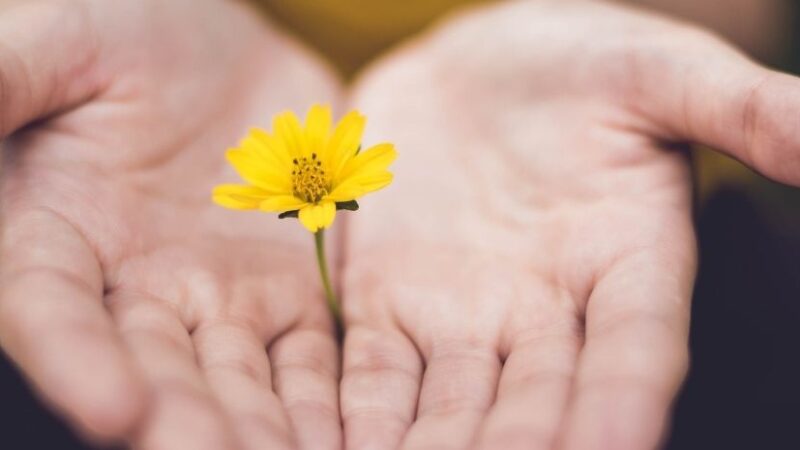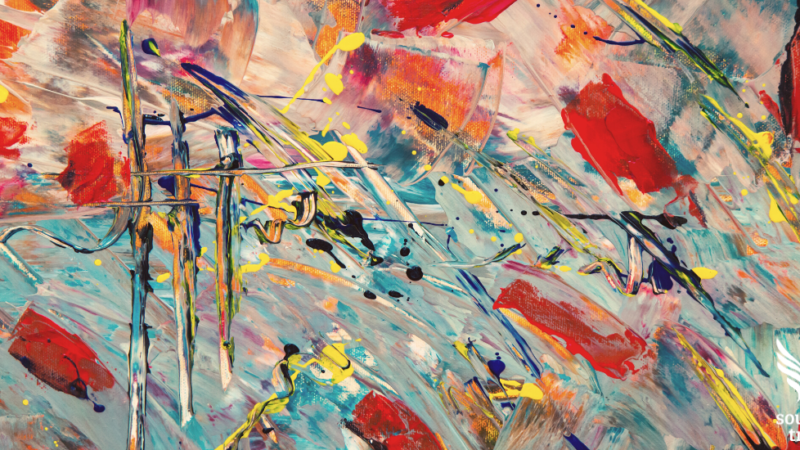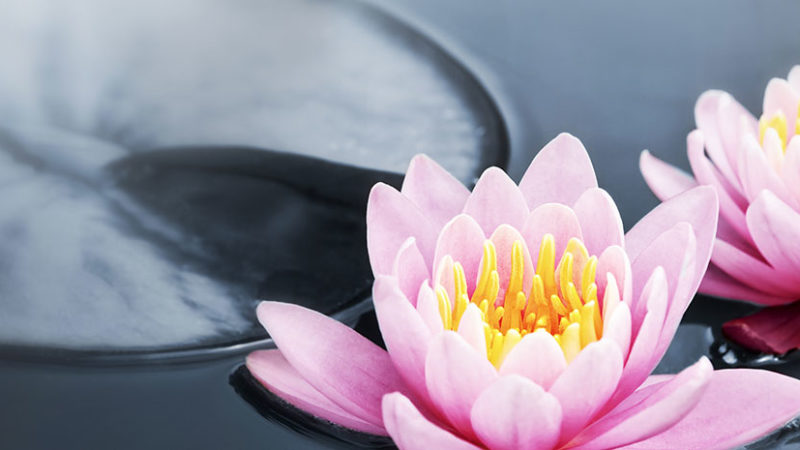-
E117: The Real Work: Letting Go from Within
Michael Singer — October 2, 2025
True spirituality isn’t about mystical experiences or lofty ideals—it’s about honestly facing...
-
Once More: Reflections on Reincarnation and the Gap Between Lives
Tami Simon — September 26, 2025
In this special reflection episode of Insights at the Edge host Tami Simon looks back on her...
-
Honey Tasting Meditation: Build Your Relationship with Sweetness
There is a saying that goes “hurt people hurt people.” I believe this to be true. We have been...
Written by:
Amy Burtaine, Michelle Cassandra Johnson
-
Many Voices, One Journey
The Sounds True Blog
Insights, reflections, and practices from Sounds True teachers, authors, staff, and more. Have a look—to find some inspiration and wisdom for uplifting your day.
Standing Together, and Stepping Up
Written By:
Tami Simon -
The Michael Singer Podcast
Your Highest Intention: Self-Realization
Michael Singer discusses intention—"perhaps the deepest thing we can talk about"—and the path to self-realization.
This Week:
E116: Doing the Best You Can: The Path to Liberation -
Many Voices, One Journey
The Sounds True Blog
Insights, reflections, and practices from Sounds True teachers, authors, staff, and more. Have a look—to find some inspiration and wisdom for uplifting your day.
Take Your Inner Child on Playdates
Written By:
Megan Sherer
600 Podcasts and Counting...
Subscribe to Insights at the Edge to hear all of Tami's interviews (transcripts available, too!), featuring Eckhart Tolle, Caroline Myss, Tara Brach, Jack Kornfield, Adyashanti, and many more.
Most Recent
3 Ways to be in Financial Integrity this Holiday Seaso...
In the whirlwind of holiday parties, gift-giving, and cooking, you can lose your grip on financial integrity faster than slipping on ice. But, your integrity is essential to your happiness and your self-worth. Here are a few easy ways to regain your center and empower your choices to give from your heart instead of your wallet.
Treasure Connectivity
When your presence is truly a gift to others, you won’t find yourself needing to overspend. Practice loving presence with the little interactions you have through the day. Slow down. Listen more. Smile more. Appreciate the uniqueness of the person in front of you. When you treasure connectivity, you won’t find yourself spending money on things that aren’t in alignment with your values.
Affirm Your Unique Values & Convictions
Speaking of aligning to your values … what are YOUR values? What do you value about the holidays? About gifting? About receiving? About money? Take a minute and write down your values and your convictions about the holidays. Read your convictions before bed, and upon arising. You’ll be more likely to live up to your convictions with money. And when you don’t, you’ll be very clear exactly what value you violated. When that happens, stop. Notice. Course correct.
Gift from Your Values
Whether you’re baking cookies or filling stockings, make each an act in alignment with your convictions. At first you may be aware of how your extended family or friends have different trends, values, or convictions. That’s ok. Notice. And be YOU. Be in your integrity. Make your people paleo gingersnaps or whatever you find nourishing and delightful. Tell your people why you gift how you gift. They love you for being you. And you being you will help them find their own financial integrity.
 Cate Stillman has been teaching audiences how to create health and wellness through yoga and Ayurveda since 2001. She is the author of Body Thrive, and hosts the Yogahealer Real Thrive Show, a weekly podcast featuring dozens of experts in the field. She splits her time between the Idaho border country and Mexico.
Cate Stillman has been teaching audiences how to create health and wellness through yoga and Ayurveda since 2001. She is the author of Body Thrive, and hosts the Yogahealer Real Thrive Show, a weekly podcast featuring dozens of experts in the field. She splits her time between the Idaho border country and Mexico.
4 Ways to Practice Gratitude This Holiday Season
The holiday season can be hectic and overwhelming, with many mixed emotions, from excitement to stress. It’s the perfect time to commit to a daily practice of gratitude which will help you experience more moments of contentment and joy and give you resilience to handle the many challenges (including travel and stressful relatives). And when you share your gratitude with others, you help them feel seen, valued, elevated, and help yourself feel more closely connected to people in your life. Here are four ways to practice gratitude this holiday season.
Say Thank You and Mean It
When you thank someone, be intentional about it and put your heart and appreciation into your words. Take a moment, pause, look them in the eye, smile, and say ‘Thank you’. If there is something specific you want to thank them for, do it, go the extra step, that’s awesome.
Daily Gratitude Bookends
Begin and end your day by writing down a few things you’re grateful for. Literally bookend your day with gratitude. If you’re not a journaling type, that’s fine—how about sharing what you’re grateful for with someone else, like a family member, friend, or co-worker—in-person or via text or email. You won’t just be practicing gratitude for yourself but inspiring them to do it also. Remember to be as specific as possible and don’t neglect really small moments.
Gratitude Zoom
If you’re feeling down or caught in a negativity spiral, pause and challenge yourself to find something you can appreciate within your experience, however small. For example, if you’re sad about being sick and missing out on what you would rather be doing, can you feel grateful that you have medicine or a comfortable place to recover or people around to help care for you?
Gratitude Antidote
When something stresses you out—too much traffic, an annoying colleague, etc.—use it as a reminder to practice gratitude. You don’t have to be grateful for whatever is stressing you out, but use it as a nudge to pause, take a breath, and think of something, however small, that you are grateful for in that moment. When you do this, you prevent your brain from going into a negativity spiral, where one annoying thought brings on another, and another, and another, until you have a really rough day.
 Nataly Kogan is an author (Happier Now), speaker, and the founder of Happier. Her work has been featured in hundreds of media outlets, including the New York Times, the Wall Street Journal, TEDx Boston, SXSW, and Dr Oz. Nataly lives with her husband and daughter in Boston. For more, visit happier.com.
Nataly Kogan is an author (Happier Now), speaker, and the founder of Happier. Her work has been featured in hundreds of media outlets, including the New York Times, the Wall Street Journal, TEDx Boston, SXSW, and Dr Oz. Nataly lives with her husband and daughter in Boston. For more, visit happier.com.
3 Ways to Set Clear Boundaries to Enjoy This Holiday S...
One of the things that get us so stressed out during the holiday season is the Must Do list, the unending expectations, the anxiety that comes when we feel we’ve let people down. But it doesn’t have to be that way. The holidays can literally be Holy Days, when you feel the love and light of family, friends, community and the shared gratitude of celebration.
Here are a few ways that Energy Medicine Yoga can help you this season.
Knowing the right way to say “No”
You know you want to say No, but you don’t know how. Before you say Yes, and add one more thing to an already full plate, take a moment in silence. Tune in and see what you really want to do. Then take one hand and draw big figure 8’s all along your throat. This is the home of the 5th chakra, where you speak your truth. The figure 8’s will help you find more clarity and ease with what can be a difficult answer.
Keep your own energies intact with the Zip Up
When you’re around a lot of people, you can take on the energies of everyone around you and start to feel like you’re losing your own self. Bring your hands in front of your pubic bone, set an intention to stay calm and true to yourself, and sweep your hands up your body and over your head. Do this two more times.
Calm down your stress response with this ‘hug’
Holidays can be stressful, and your body will respond to that. You can balance the stress response with the ‘inner mom’ by doing the Spleen hug. Hug one hand around your waist, hug the other hand around the opposite elbow. You can stand like this around the punch bowl, and feel calm and grounded so you can enjoy the holiday chaos!
 Lauren Walker is the author of The Energy Medicine Yoga Prescription (Sounds True, Sept 2017) and Energy Medicine Yoga: Amplify the Healing Power of Your Yoga Practice (Sounds True, 2014). She’s been teaching yoga and meditation since 1997 and created Energy Medicine Yoga while teaching at Norwich University. She teaches EMYoga across the US and internationally and has been featured in Yoga Journal, Mantra Yoga + Healing, Yoga Digest, and The New York Times. She was recently named one of the top 100 most influential yoga teachers in America by Sonima. For more information, visit EMYoga.net.
Lauren Walker is the author of The Energy Medicine Yoga Prescription (Sounds True, Sept 2017) and Energy Medicine Yoga: Amplify the Healing Power of Your Yoga Practice (Sounds True, 2014). She’s been teaching yoga and meditation since 1997 and created Energy Medicine Yoga while teaching at Norwich University. She teaches EMYoga across the US and internationally and has been featured in Yoga Journal, Mantra Yoga + Healing, Yoga Digest, and The New York Times. She was recently named one of the top 100 most influential yoga teachers in America by Sonima. For more information, visit EMYoga.net.
The community here at Sounds True wishes you a lovely holiday season! We are happy to collaborate with some of our Sounds True authors to offer you wisdom and practices as we move into this time together; please enjoy this blog series for your holiday season.
To help encourage you and your loved ones to explore new possibilities this holiday season, we’re offering 40% off nearly all of our programs, books, and courses sitewide. May you find the wisdom to light your way.
Customer Favorites
Guided Meditation: Accepting Your Experience Just as I...
If you have traveled on the spiritual path even a little way, you have probably come across some version of “love what is”—a reminder that you should accept your experience as it is. However, this teaching easily becomes another injunction. Notice the should in the earlier sentence—it is always a red flag that the judging mind is at work.
The conditioned mind cannot accept unconditionally. It always has an agenda, even if it is well hidden. It secretly bargains and sends the message, “I will accept you [sotto voce] if you change or leave.” This approach is akin to welcoming guests at your front door while secretly hoping they will exit out the back—the sooner, the better! Guests—our unwanted thoughts, feelings, and sensations—will certainly feel this conditional invitation, even if it is unspoken. As a result, they will be much less willing to enter, relax, and reveal themselves. The result? What we resist, persists. So when your new arrivals show up at your door, put away your timer and share some aromatic green tea and a raspberry scone with them. Settle in and let them tell their stories and share their feelings. They just want to be heard and understood. Once they feel genuinely received, they will be open to a new perspective.
Are you willing to be with your experience just as it is, even if it never changes? This is a critically important checking question. Take a few minutes to inquire with the following practice.
MEDITATIVE INQUIRY
Are You Willing to Accept Your Experience Just as It Is?
Sit quietly where you won’t be disturbed, close or lower your eyes, and take a few deep breaths. Feel the weight of your body held by whatever you are sitting on and relax. Feel your attention settling down and in.
Think of a troubling aspect of your conditioning—an unwelcome pattern of behavior, reactive feeling, bodily tension, or invasive thought. Then ask yourself: “Am I willing to accept this just as it is?”
If your response comes from the strategic mind, there will be an honest no. This is good to see. If this is the case, try asking the question a little differently: “Is there something in me that already accepts this just as it is?”
If your attention has settled into the Deep Heart, you will find a yes.
Journey into the depths of your own heart with Dr. John J. Prendergast’s guide, The Deep Heart: Our Portal to Presence.
You’re Already Doing Magick – You Just Don...
Every person on this earth is born with an entire universe of potential in them. Most people never cultivate the seeds of that potential, so the seeds go to waste and the people go through life wondering what went wrong, or blaming the world for everything that did go wrong.
Magick waters those seeds to make that potential stir, grow, and flower. It accelerates our spiritual and mental development in ways we never could have predicted. Our ability to shape our destiny and the world around us using magick is limited only by our own belief, dedication, and creativity.
The goal of my new book, High Magick, is to provide you with the opportunity to experience the magick that resides within you—within each and every one of us, without exception. These rituals and practices are merely guidelines—a place to begin.
To get you started, here’s a short video where I share a basic magick practice for more healing love.

Damien
Jeff Foster: The Deepest Acceptance
Tami Simon speaks with Jeff Foster, voted in 2012 by The Watkins Review as one of the world’s 100 most spiritually influential people living today. With Sounds True, Jeff has released a new book, The Deepest Acceptance: Radical Awakening in Ordinary Life, and an accompanying audio program inviting us to discover the ocean of who we are: an awareness that has already allowed every wave of emotion and experience to arrive. In this episode, Jeff explains that we are acceptance, how to work with practical concerns such as financial fears, and the power of being with someone who is suffering—with an absolutely open embrace. Jeff also talks about his own path of awakening, including deep depression and some of his most important discoveries. (90 minutes)





